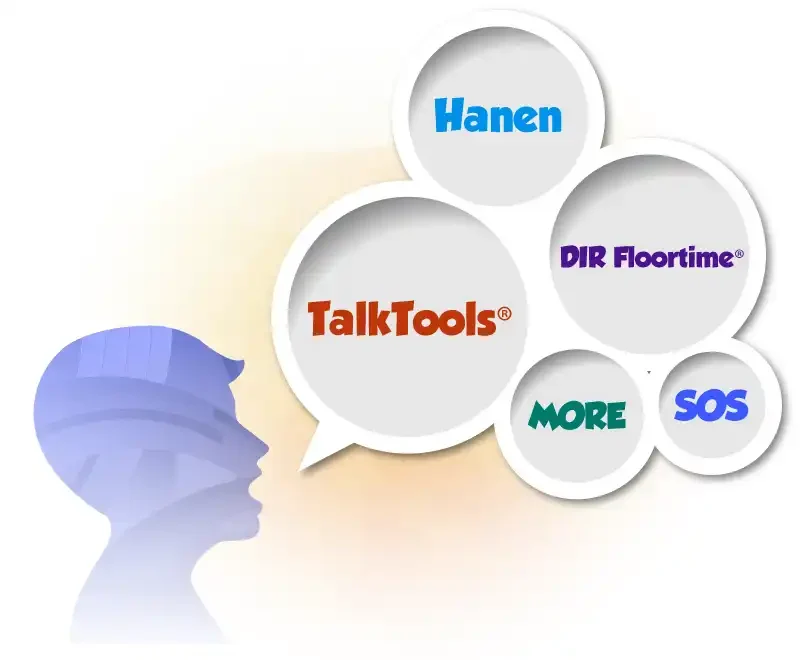Every child is different, and therefore we provide an individualized intervention plan. We maximize progress in speech, language and communication by combining the most recent evidence based research and treatment methods.

We maximise the child’s progress in speech, language and communication by combining the latest and most effective treatment methods. Our Speech-Language Therapists are trained and experienced in a variety of popular treatment modalities, which include:
- Hanen Programs
- It Takes Two To Talk
- More Than Words
- TalkAbility
- Social Thinking
- PECS (Picture Exchange Communication System)
- DIR Floortime®
- Sequential Oral Sensory (SOS) Approach to Feeding
- Lidcombe Program
- Nuffield Dyspraxia Program
- PROMPT
- TalkTools®
Key collaborations are important in the child’s therapeutic journey at Dynamics Speech. We strongly believe that parents and caregivers play a vital role in the success of the child’s therapy. They can provide support and reinforcement in learning when the child is at home. As such, we actively partner with the child’s parents and/or primary caregivers and support them through parent training, relevant resources and maintain regular and open communication throughout the child’s therapy.
We also ensure the child receives integrated care and support, if needed, through seamless and effective collaborations with Dynamics’ in-house multidisciplinary team of healthcare professionals.
Olivia’s journey embodies a remarkable transformation in her social communication skills. Initially faced with challenges connecting with peers and feeling isolated, her parents’ proactive approach led her towards a path of growth and newfound confidence.
Through a comprehensive therapy approach, Olivia embarked on a tailored program that combined individualized speech sessions with engaging social skills groups. In her one-on-one sessions, Olivia received personalized guidance from a skilled speech therapist, delving into strategies aimed at enhancing her social interactions. These sessions incorporated diverse techniques, from storytelling to visual aids, fostering Olivia’s understanding and empowering her to apply these strategies with confidence.

Moreover, her participation in social skills groups, facilitated by a team of professionals spanning various disciplines, provided a nurturing space for Olivia to put her evolving skills into practice. Through interactive activities, role-playing scenarios, and insightful discussions, Olivia honed her ability to engage meaningfully with her peers and navigate social scenarios with increased ease.
The impact of this holistic approach was evident over time. Olivia blossomed, demonstrating a marked improvement in her social interactions. Her parents noticed significant changes – a newfound awareness of others’ feelings during conversations and a more consistent adherence to conversational norms, such as taking turns to speak.
While her progress is remarkable, Olivia’s journey is ongoing. She continues to attend social skills groups, eager to further refine her social communication skills and build upon the solid foundation she has established. Olivia’s story serves as an inspiring testament to the power of targeted therapy and supportive environments in nurturing and empowering children like her to thrive in social settings.
Note: The identities of the individuals mentioned in the success story have been altered to maintain confidentiality.